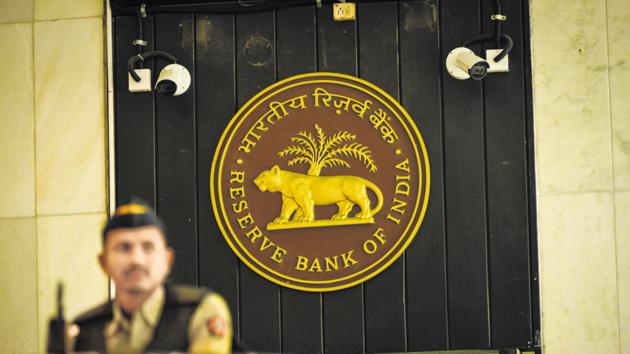RBI has done its bit, now over to the government
The general sense of gloom in business needs to change before we can expect economic growth.
The Reserve Bank of India (RBI) cut the repo rate by 35 basis points, a little beyond what it usually does. Inflation is within control. The economy is slowing down. RBI has lowered its growth projections for the first half of the year sharply. The RBI’s projections indicate that it expects growth to improve in the second half of the year, and will be 6.9 for the year.

The Reserve Bank of India (RBI) on Wednesday cut the repo rate by 35 basis points, a little beyond what it usually does. Inflation is within control. The economy is slowing down. RBI has lowered its growth projections for the first half of the year sharply. Its projections indicate that it expects growth to improve in the second half of the year, and will be 6.9% for the year.
The question we ask is, what will give higher growth in the second half of the year? There is only so much that a monetary policy can achieve. With a weak transmission mechanism, a stressed banking sector, and difficulties in the non-bank financial sector, the heavy-lifting will have to be done by other policy changes.
Private investment is a critical engine of growth for the economy. The government neither has the capacity, nor the fiscal space, to lift investment and growth without the participation of entrepreneurs across the country. The only way investment in India can pick up is if they are upbeat about the opportunities that the economy has to offer them to make a decent living from doing business. Under Modi 1.0, India enacted the Insolvency and Bankruptcy Code and the Goods and Services Tax (GST); it rose to higher ranks on the ease of doing business; and it tried to push both public investment and micro, small and medium enterprises credit. Yet, private investment has not picked up. Apart from the policy initiatives already undertaken, and the interest rate cuts that RBI is delivering, what does the government need to do?
The most important department that perhaps affects the economy is the tax department or the department of revenue. Its job is to increase the share of gross domestic product (GDP) that it collects as taxes. To do so, it often proposes new taxes or increases in tax rates. It is not expected to focus on the impact its proposals have on GDP or investment. Often, given the narrow tax base that India has, increasing revenues is easier done by increasing the tax rate or the tax burden of those already paying taxes, than by increasing compliance. In recent years, marginal tax rates have been increasing. This has made trying to evade taxes more attractive. To counter the subsequent loss of revenue through evasion, the tax department has been given greater powers to go after those who they feel are evading taxes. Again, the tax department was not expected to assess the impact of its greater powers on businesses, and the sentiment of businessmen.
India today has a number of taxes, like the surcharge on income and corporate tax, the Securities Transaction Tax (STT) and, now, the tax on the super-rich, where no analysis is done about the impact of the tax on the economy. Economic theory and the Laffer curve suggest that, beyond a point, increasing the tax rate is counterproductive, even in terms of collecting more revenue. Beyond that, it can also have negative effects on incentives for investment in the country, for encouraging growth and job creation.
For example, what is the impact of the tax on the super-rich? What is the effect of the tax on foreign portfolio investors and stock markets? How is it going to impact investment?
One part of the story is that in tax policy gets made based on proposals by the tax administration, which focuses on how to collect taxes in the administratively easiest ways. The tax policy unit resides within the department of revenue.
Seeing the business environment today, there is little doubt that a thorough analysis of the economy-wide impact of policies is needed before proposals are accepted. This needs to be an integral part of policymaking. The finance minister, with the responsibility of the economy, has to turn down many proposals that may appear attractive in the short run, and keep her tax administration under a tight leash.
She should perhaps restore the role of the department of economic affairs (DEA) in the ministry of finance that has traditionally had the task of pushing for reform and productivity growth in the economy by looking beyond short term and sectoral issues.
For this reason, lowering taxes, import tariffs, pushing for greater foreign investment since 1991, and liberalisation and better regulation of the financial sector have been pushed by the finance ministry in the past.
While sector-specific ministries such as aviation, railways, steel, textiles, heavy industry, chemicals - a legacy of the planning era - focus on their areas or sectors, they may, at times, lobby for what is good for their sector, but not for the economy as a whole. The DEA should study the investment and growth impact of policy proposals before they are accepted. The general sense of gloom in business needs to change before we can expect that growth will be higher in the second half of the year. RBI has done its bit, now the government needs to do its share.
Ila Patnaik is an economist and a professor at the National Institute of Public Finance and Policy
The views expressed are personal







